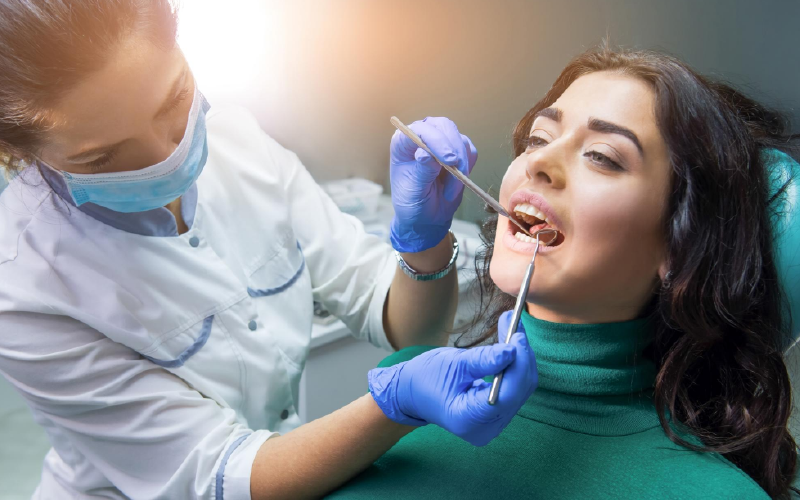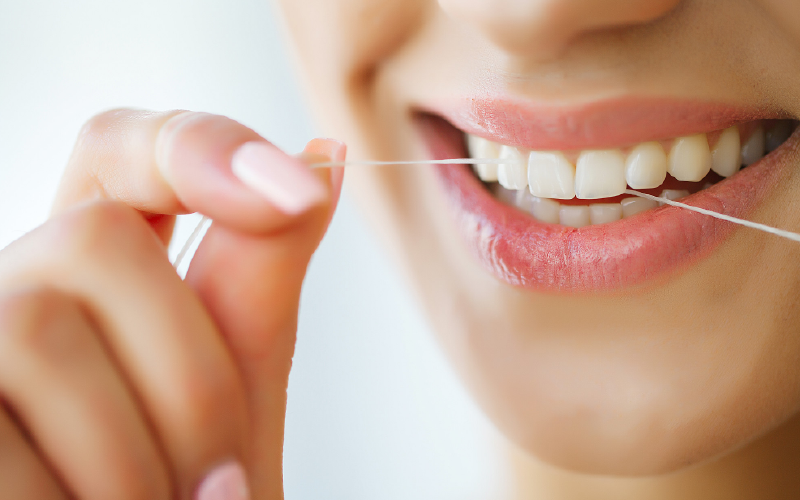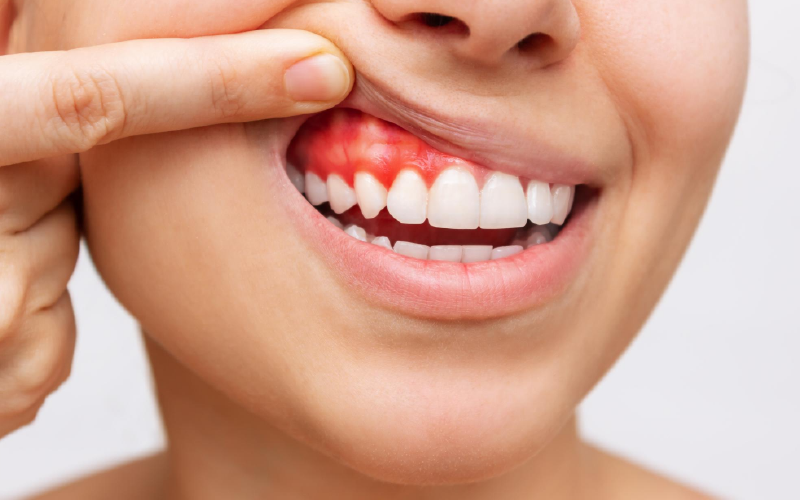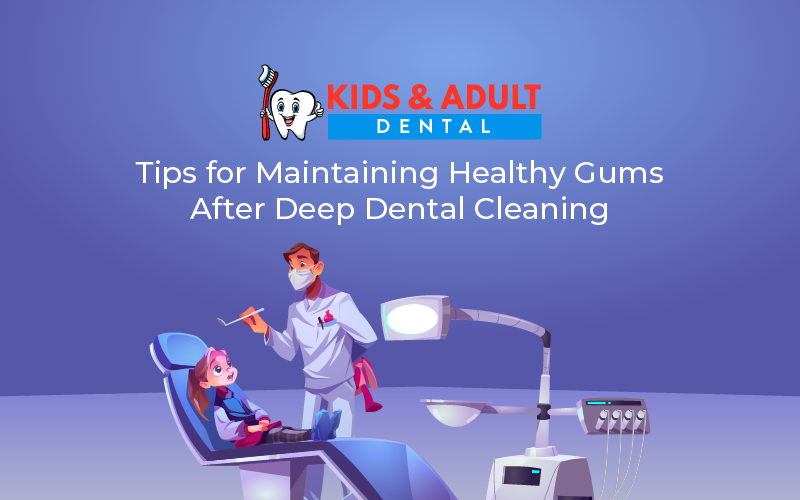Deep cleaning, also known as scaling and root planing, is a crucial dental procedure that helps combat gum disease and maintain optimal oral health.
While the deep cleaning process effectively removes plaque and tartar buildup below the gum line, proper aftercare and recovery are essential for achieving the best results and ensuring long-term gum health.
In this comprehensive guide, we will explore the importance of post-deep cleaning care and provide valuable insights into the recovery process.
Importance of Post-Deep Cleaning Care
After undergoing a deep cleaning, also known as scaling and root planing, it’s essential to prioritize diligent aftercare.
This procedure targets the removal of plaque, tartar, and bacteria from below the gum line, promoting gum health and preventing gum disease.
Following proper aftercare practices minimizes the risk of infection, promotes healing, and maintains the overall effectiveness of the treatment.
The Next Steps: After Your Deep Cleaning Procedure

After your deep cleaning procedure, it’s important to know what to expect during the post-procedure period. Sensitivity is common, especially to hot or cold temperatures, but it should subside within a few weeks.
Your gums may feel tender, swollen, or slightly bleeding, which is a normal part of the healing process. Rinsing your mouth with warm saltwater can help alleviate discomfort.
You may notice temporary changes in the appearance of your gums, such as redness or inflammation, but these should improve over time. Some minor bleeding from the gums is normal, but it should gradually decrease as your gums heal.
Your dentist will provide specific oral hygiene instructions, such as gentle brushing techniques using a soft-bristled toothbrush and the use of antimicrobial mouthwash or prescribed rinses.
Avoiding hard, crunchy, or sticky foods, as well as smoking or tobacco use, is important for proper healing. In order to keep track of your improvement, go to any follow-up appointments your dentist has scheduled.Be patient and diligent with your aftercare procedures because healing takes time.
If you experience severe or prolonged pain, excessive bleeding, persistent swelling, or any other unusual symptoms, contact your dentist for further evaluation.
Read Also: Role of Dental Cleaning in Preventing Gum Disease and Tooth Decay
Deep Cleaning Teeth Aftercare Tips
After undergoing a deep cleaning procedure for your teeth, proper aftercare is crucial for optimal healing and maintaining your oral health. Following these aftercare tips will help you navigate the recovery period with ease:
1. Take it Easy

In the first 24 hours following your deep cleaning, it’s important to avoid engaging in strenuous physical activities. This precaution helps minimize bleeding and discomfort, allowing your gums to heal undisturbed.
2. Manage Discomfort
It’s normal to experience some degree of soreness and tenderness after the deep cleaning procedure. To alleviate any discomfort, you can consider taking over-the-counter pain relievers such as ibuprofen or acetaminophen.
However, always follow the recommended dosage instructions and consult with your dentist if you have any concerns or if the pain persists.
3. Follow Oral Hygiene Instructions

Your dentist or dental hygienist will provide you with specific instructions tailored to your needs for maintaining proper oral hygiene during the recovery period. It’s essential to adhere to these instructions diligently.
Use a soft-bristled toothbrush to gently brush your teeth, paying extra attention to the gumline where plaque and bacteria tend to accumulate. Opt for a toothpaste that is recommended by your dentist, preferably one that promotes gum health.
Additionally, incorporate daily flossing into your routine to remove plaque and food particles from between your teeth and along the gumline. Rinse with an antimicrobial mouthwash to further combat bacteria and maintain oral freshness.
Read Also: Flossing with braces: a comprehensive guide
4. Rinse with Saltwater
Throughout the day, rinsing your mouth with warm saltwater can provide additional benefits for your gums during the recovery period. Saltwater rinses help reduce inflammation, soothe your gums, and promote healing.
Stir half a teaspoon of salt into a glass of warm water to create a saltwater rinse. Spit out the mixture after gently rinsing your mouth with it for around 30 seconds. For best outcomes, carry out this procedure numerous times each day.
5. Avoid Irritating Foods and Drinks:

It’s important to avoid consuming foods and beverages that can irritate your gums during the recovery period. Steer clear of hot and spicy foods, as well as acidic items like citrus fruits and juices.
These can aggravate your gums and prolong the healing process. Instead, opt for soft and gentle foods that are easy to chew and swallow, such as mashed potatoes, yogurt, and soups.
6. Stay Hydrated

Adequate hydration is essential for the overall healing process, including oral healing. Drink plenty of water throughout the day to keep your mouth hydrated and assist in the recovery of your gums.
Water helps flush out debris, maintains saliva production, and supports a healthy oral environment.
7. Quit Smoking

If you are a smoker, it’s crucial to refrain from smoking during the recovery period after your deep cleaning. Smoking can severely hinder the healing process and increase the risk of complications such as infection and delayed gum healing.
Take this opportunity to quit smoking altogether or seek support to temporarily abstain from it until your gums have fully healed.
8. Follow up with Your Dentist
Attending any scheduled follow-up appointments with your dentist is vital for monitoring your progress and ensuring proper healing.
During these visits, your dentist will assess your gums, address any concerns you may have, and provide additional guidance on long-term oral care practices.
Read Also: Astonishing Benefits of Dental Cleaning in Denver
Dealing with Gum Bleeding After Deep Teeth Cleaning

Experiencing gum bleeding after a deep teeth cleaning can be a common occurrence, but it’s important not to ignore it. After the deep cleaning procedure, known as scaling and root planing, it’s normal for your gums to be sensitive and prone to bleeding.
This happens because the process involves removing plaque and tartar buildup from below the gumline, which can cause temporary irritation and inflammation.
However, it’s crucial to address the issue and take appropriate measures to ensure proper oral health.
To alleviate gum bleeding, give your gums time to heal, maintain proper oral hygiene practices by gently brushing your teeth twice a day with a soft-bristled toothbrush and incorporating daily flossing.
Additionally, rinsing your mouth with warm saltwater can help soothe your gums and aid in the healing process. Avoid tobacco products, alcohol-based mouthwashes, and spicy or acidic foods that may irritate your gums further.
If the bleeding persists or worsens after a few days, it’s recommended to contact your dentist for further evaluation and guidance.
They can assess your specific situation and provide appropriate treatment or advice to address the issue effectively.
Conclusion
In conclusion, proper aftercare and recovery following deep dental cleaning in Denver, CO, are crucial for maintaining healthy gums and overall oral well-being.
By diligently following the instructions and guidelines provided by your dental clinic in Denver, managing discomfort and swelling, practicing good oral hygiene, adopting a nutritious diet, and adhering to long-term oral care practices, you can ensure a successful recovery and enjoy a lifetime of healthy gums and a beautiful smile.

